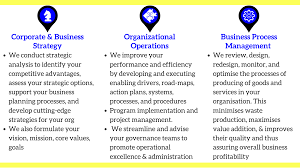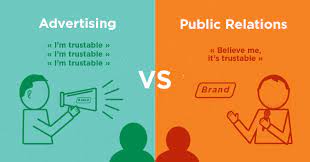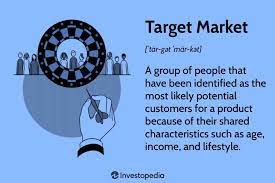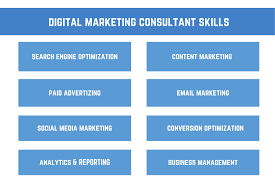Unleashing the Power of SEO: Becoming an Expert in the Field
Becoming an Expert in SEO: Unlocking the Power of Search Engine Optimization
In today’s digital age, having a strong online presence is crucial for businesses to thrive and succeed. One of the most effective ways to achieve this is through search engine optimization (SEO). SEO is the practice of optimizing a website to improve its visibility and ranking on search engine results pages (SERPs). It involves various techniques and strategies that, when implemented correctly, can drive organic traffic and increase brand exposure.
Becoming an expert in SEO requires dedication, continuous learning, and staying up-to-date with the ever-evolving algorithms of search engines like Google. Here are some key areas to focus on when aiming to master the art of SEO:
- Keyword Research: Keywords are the foundation of SEO. Identifying relevant keywords that align with your business and target audience is crucial. Conduct thorough research to understand which keywords have high search volume and low competition. This will help you optimize your website content effectively.
- On-Page Optimization: On-page optimization involves optimizing various elements on your website such as title tags, meta descriptions, headers, URLs, and content itself. Pay attention to keyword placement, readability, and ensuring that your website provides valuable information to users.
- Technical SEO: Technical SEO focuses on optimizing the technical aspects of your website for better crawling and indexing by search engines. This includes improving site speed, mobile-friendliness, URL structure, XML sitemaps, and implementing structured data markup.
- Link Building: Building high-quality backlinks from authoritative websites plays a vital role in improving your website’s authority and visibility. Engage in ethical link-building practices such as guest blogging, creating valuable content that others want to link to, or reaching out for collaborations with industry influencers.
- Content Creation: Content is king when it comes to SEO. Creating high-quality, relevant content that addresses users’ needs is essential for both user engagement and search engine rankings. Focus on creating informative, engaging, and shareable content that naturally incorporates relevant keywords.
- Analytics and Monitoring: Utilize tools like Google Analytics to monitor your website’s performance, track keyword rankings, and gain insights into user behavior. Regularly analyze data to identify areas for improvement and make data-driven decisions to optimize your SEO strategy.
- Stay Updated: SEO is an ever-changing field, with search engines regularly updating their algorithms. Stay informed about the latest industry trends, algorithm updates, and best practices through reputable sources such as industry blogs, forums, and official search engine documentation.
Remember that becoming an expert in SEO is a continuous journey. As search engines evolve and user behavior changes, it’s essential to adapt your strategies accordingly. Embrace a growth mindset, experiment with new techniques, and stay curious about emerging trends in the SEO landscape.
If you find mastering SEO overwhelming or time-consuming, consider partnering with a trusted SEO agency or consultant who can provide expert guidance tailored to your business needs. With their expertise and experience, they can help you navigate the complexities of SEO while delivering tangible results for your online presence.
In conclusion, investing time and effort into becoming an expert in SEO is a worthwhile endeavor for any business aiming to thrive in the digital realm. By optimizing your website effectively for search engines and providing valuable content to users, you can unlock the power of SEO to drive organic traffic, increase brand visibility, and achieve long-term success online.
- What knowledge should an SEO expert possess?
- Who is considered the top SEO specialist?
- What profession does SEO fall under?
- Is being an SEO specialist a good career choice?
5
- What should an SEO expert know?
- Who is the best SEO specialist?
- What profession is SEO?
- Is SEO specialist a good job?
- What are the duties of an SEO expert?
- What makes a good SEO expert?
- What skills do you need to be a SEO expert?
- What is SEO job title?
- What do you call an SEO specialist?
- Is it worth hiring an SEO expert?
- What does an SEO expert know?
- Is it worth getting a SEO expert?
- Who is the World No 1 SEO expert?
- Is SEO a good career?
- Is it possible to become an SEO expert?
- Can anyone become an SEO expert?
- What type of skill is SEO?
- Who can be SEO specialist?
- What is the meaning of SEO?
What should an SEO expert know?
An SEO expert should possess a comprehensive understanding of various aspects related to search engine optimization. Here are some key areas that an SEO expert should be knowledgeable about:
- Search Engine Algorithms: An SEO expert should have a deep understanding of how search engine algorithms work, particularly those of major search engines like Google. This includes staying updated on algorithm changes and understanding how they impact website rankings.
- Keyword Research: Keyword research is a fundamental skill for an SEO expert. They should know how to identify relevant keywords with high search volume and low competition. This involves using keyword research tools, analyzing user intent, and selecting the most appropriate keywords for optimization.
- On-Page Optimization: An SEO expert should be well-versed in on-page optimization techniques. This includes optimizing meta tags (title tags, meta descriptions), headers, URLs, internal linking structure, and ensuring that the content is optimized for target keywords while maintaining readability and user experience.
- Technical SEO: Technical aspects of SEO are crucial for website performance and visibility. An SEO expert should have knowledge of technical elements such as site speed optimization, mobile-friendliness, URL structure, XML sitemaps, canonicalization, robots.txt files, structured data markup (schema.org), and more.
- Link Building: Link building plays a significant role in improving website authority and visibility. An SEO expert should understand various link-building strategies such as guest blogging, outreach campaigns, content promotion techniques, building relationships with influencers or industry websites for backlinks.
- Content Creation: Content is at the core of any successful SEO strategy. An SEO expert should know how to create high-quality content that is relevant to the target audience while incorporating target keywords naturally. They should also understand the importance of creating engaging and shareable content.
- Analytics and Reporting: Proficiency in using web analytics tools such as Google Analytics is essential for an SEO expert to measure website performance accurately. They should be able to analyze data, track keyword rankings, monitor traffic patterns, identify areas for improvement, and provide detailed reports on SEO performance.
- Local SEO: Understanding local SEO is crucial for businesses targeting specific geographic locations. An SEO expert should know how to optimize websites for local searches, including managing Google My Business listings, obtaining online reviews, and implementing location-specific strategies.
- User Experience (UX): An SEO expert should have a good understanding of user experience principles and how they impact search engine rankings. This includes optimizing page load speed, mobile responsiveness, site navigation, and overall usability.
- Continuous Learning: The field of SEO is constantly evolving. An SEO expert should have a growth mindset and a commitment to continuous learning. Staying updated with industry news, following reputable sources such as blogs and forums, attending conferences or webinars are essential to stay ahead in the ever-changing world of SEO.
By possessing these core skills and staying up-to-date with the latest trends and techniques in the industry, an SEO expert can effectively optimize websites for search engines and drive organic traffic to achieve desired business goals.
Who is the best SEO specialist?
There is no single answer to this question as the best SEO specialist will depend on the specific needs of the business. It is important to research potential SEO specialists and look at their experience, portfolio and reviews to determine which one is best suited for your particular needs.
What profession is SEO?
SEO (Search Engine Optimization) is a profession within the field of digital marketing. SEO professionals specialize in optimizing websites and online content to improve their visibility and ranking on search engine results pages (SERPs). Their primary goal is to drive organic (non-paid) traffic to websites by improving their search engine rankings. SEO professionals utilize various strategies, techniques, and tools to analyze, optimize, and monitor websites for better performance in search engine algorithms. They may work as independent consultants, in-house specialists for companies, or as part of digital marketing agencies.
Is SEO specialist a good job?
Being an SEO specialist can be a rewarding and fulfilling career choice for individuals interested in the digital marketing field. Here are some reasons why being an SEO specialist can be a good job:
Growing Demand: In today’s digital landscape, businesses of all sizes are recognizing the importance of having a strong online presence. As a result, the demand for skilled SEO specialists is on the rise. This offers excellent job prospects and opportunities for career growth.
Constant Learning: SEO is a dynamic field that is constantly evolving due to search engine algorithm updates, new technologies, and changing user behaviors. As an SEO specialist, you’ll have the opportunity to continuously learn and adapt to these changes, keeping your skills sharp and staying ahead of the curve.
Variety of Tasks: SEO encompasses various aspects such as keyword research, on-page optimization, link building, content creation, data analysis, and more. This diversity of tasks keeps the job interesting and allows you to develop a broad skill set within digital marketing.
Impactful Results: Implementing effective SEO strategies can lead to significant improvements in website visibility, organic traffic, and overall business growth. Seeing your efforts translate into tangible results can be highly satisfying and rewarding.
Analytical Approach: SEO requires a data-driven approach where you analyze metrics and make informed decisions based on insights gained from tools like Google Analytics or keyword research platforms. If you enjoy working with data and using it to drive decision-making processes, being an SEO specialist can be an excellent fit.
Flexibility: Many SEO specialists have the flexibility to work remotely or as freelancers since much of their work can be done online. This flexibility allows for better work-life balance and the potential to work with clients from around the world.
However, it’s important to note that being an SEO specialist also comes with challenges:
Constant Learning Curve: Staying up-to-date with algorithm changes and industry trends requires continuous learning and keeping abreast of the latest developments. This can be time-consuming and demanding.
Competitive Industry: The field of SEO is highly competitive, with many professionals vying for top positions. To stand out, you’ll need to continuously improve your skills, demonstrate expertise, and deliver results.
Evolving Nature: SEO practices that work today may not necessarily be effective tomorrow. The ever-changing nature of SEO means you need to adapt quickly and be willing to experiment with new strategies.
Overall, being an SEO specialist can be a fulfilling career choice for those passionate about digital marketing, data analysis, and staying ahead in a constantly evolving industry. With the right skills, dedication, and continuous learning, you can thrive in this field and contribute to the success of businesses in the online realm.
What are the duties of an SEO expert?
The duties of an SEO expert can vary depending on the specific needs of a business or organization. However, here are some common responsibilities that an SEO expert typically handles:
- Keyword Research: Conducting comprehensive keyword research to identify relevant and high-traffic keywords that align with the business’s goals and target audience.
- On-Page Optimization: Optimizing various on-page elements such as title tags, meta descriptions, headers, URLs, and content to improve search engine visibility and user experience.
- Technical SEO: Ensuring that the website is technically optimized for search engines. This includes improving site speed, mobile-friendliness, URL structure, XML sitemaps, implementing structured data markup, and resolving any technical issues that may affect search engine crawling and indexing.
- Off-Page Optimization: Building high-quality backlinks from authoritative websites through ethical link-building practices like guest blogging, influencer collaborations, or creating valuable content that others want to link to.
- Content Strategy: Developing and implementing a content strategy that focuses on creating high-quality, relevant content aimed at addressing users’ needs and incorporating targeted keywords naturally.
- Performance Monitoring: Utilizing tools like Google Analytics to monitor website performance, track keyword rankings, analyze user behavior data, and make data-driven decisions to optimize SEO strategies.
- Competitive Analysis: Conducting competitor analysis to identify areas where competitors are excelling in terms of SEO strategies and finding opportunities for improvement or differentiation.
- Keeping Up with Industry Trends: Staying informed about the latest industry trends, algorithm updates from search engines like Google or Bing, and best practices through continuous learning from reputable sources such as industry blogs or attending conferences.
- Reporting and Analysis: Regularly providing reports on key performance indicators (KPIs) such as organic traffic growth, keyword rankings, conversion rates, and other relevant metrics to measure the effectiveness of SEO efforts.
- Collaboration with Other Teams: Working closely with other teams, such as content creators, web developers, and marketing teams, to ensure SEO best practices are incorporated into various aspects of the business’s online presence.
It’s important to note that the duties of an SEO expert can vary depending on the size and nature of the organization. Some experts may specialize in specific areas of SEO, while others may handle a broader range of responsibilities. Ultimately, the goal is to improve search engine visibility, drive organic traffic, and contribute to the overall digital marketing strategy of the business.
What makes a good SEO expert?
A good SEO expert possesses a combination of knowledge, skills, and qualities that enable them to excel in the field. Here are some key attributes that make a good SEO expert:
- In-depth Knowledge: An SEO expert should have a strong understanding of search engine algorithms, ranking factors, and best practices. They should stay updated with the latest trends and changes in the SEO industry.
- Technical Expertise: A good SEO expert should be proficient in technical aspects such as website structure, HTML, CSS, JavaScript, and server configurations. They should know how to optimize website speed, mobile-friendliness, URL structure, and other technical elements.
- Analytical Skills: Effective SEO requires data analysis and interpretation. A good SEO expert should be able to analyze website metrics, keyword rankings, user behavior data, and other relevant data to make informed decisions and optimize strategies accordingly.
- Research Abilities: Keyword research is a fundamental aspect of SEO. An expert should have excellent research skills to identify relevant keywords with high search volume and low competition. They should also be able to analyze competitors’ strategies effectively.
- Content Creation Skills: Content plays a crucial role in SEO success. An expert should possess strong writing skills to create high-quality content that engages users and incorporates relevant keywords naturally.
- Link Building Expertise: Building authoritative backlinks is essential for improving website authority and visibility. A good SEO expert understands ethical link-building practices and knows how to acquire high-quality backlinks from reputable sources.
- Adaptability: The SEO landscape is constantly evolving. A good SEO expert embraces change and adapts their strategies accordingly. They stay updated with algorithm updates, industry trends, new tools, and techniques.
- Communication Skills: An effective SEO expert can communicate complex concepts in a clear and understandable manner to clients or team members who may not have an extensive understanding of SEO.
- Problem-Solving Abilities: In the ever-changing SEO environment, challenges and obstacles are inevitable. A good SEO expert possesses strong problem-solving skills to identify issues, troubleshoot problems, and find effective solutions.
- Ethical Approach: A good SEO expert adheres to ethical practices and guidelines set by search engines. They avoid black-hat techniques that can harm a website’s reputation and focus on providing value to users through legitimate strategies.
- Results-Oriented: Ultimately, a good SEO expert is focused on delivering results. They set measurable goals, track progress, and continuously optimize strategies to achieve the desired outcomes for their clients or their own projects.
Remember that becoming a good SEO expert requires continuous learning, staying updated with industry changes, and hands-on experience in implementing successful strategies. It’s a dynamic field that demands dedication and adaptability to deliver effective results in the ever-evolving digital landscape.
What skills do you need to be a SEO expert?
Becoming an SEO expert requires a combination of technical skills, analytical abilities, and a deep understanding of search engine algorithms. Here are some key skills that are essential for anyone aiming to excel in the field of SEO:
- Technical SEO: A solid understanding of technical aspects is crucial for optimizing websites effectively. This includes knowledge of website architecture, HTML, CSS, JavaScript, and server-side factors. Being able to identify and fix technical issues that may impact search engine crawling and indexing is vital.
- Keyword Research: Expertise in conducting comprehensive keyword research is essential. This involves identifying relevant keywords with high search volume and low competition that align with the target audience’s search intent.
- On-Page Optimization: Skill in optimizing on-page elements such as title tags, meta descriptions, headers, URLs, and content itself is necessary. The ability to strategically place keywords while maintaining readability and providing valuable information to users is crucial.
- Off-Page Optimization and Link Building: Proficiency in building high-quality backlinks from authoritative websites is important for improving website authority and visibility. This involves outreach strategies, content promotion techniques, and understanding ethical link-building practices.
- Content Creation: Strong content creation skills are essential for SEO success. Being able to produce high-quality, engaging, and informative content that incorporates relevant keywords naturally is crucial for user engagement and search engine rankings.
- Analytics and Data Interpretation: Expertise in using tools like Google Analytics to monitor website performance, track keyword rankings, analyze user behavior data, and derive actionable insights is vital for making data-driven decisions to optimize SEO strategies effectively.
- Problem-Solving Abilities: An SEO expert should possess strong problem-solving skills to identify issues hindering website performance or rankings and come up with effective solutions to address them.
- Adaptability: Keeping up with the ever-changing landscape of SEO requires adaptability. Staying informed about the latest algorithm updates from search engines, industry trends, and emerging techniques is crucial for maintaining expertise in the field.
- Communication and Collaboration: Effective communication skills are important for collaborating with clients, stakeholders, and other team members to understand business goals, align SEO strategies, and report on progress and results.
- Continuous Learning: SEO is a dynamic field that constantly evolves. A commitment to continuous learning is essential for staying ahead of the curve, exploring new techniques, and adapting strategies as search engines and user behaviors change.
While these skills are fundamental for becoming an SEO expert, it’s important to note that the field is vast and multidimensional. Expertise in specific areas may vary depending on individual preferences or niche specializations within SEO.
What is SEO job title?
The job title commonly associated with SEO (Search Engine Optimization) is “SEO Specialist” or “SEO Analyst.” These titles are used to describe professionals who specialize in optimizing websites and digital content to improve their visibility and ranking on search engine results pages (SERPs). Other related job titles may include “SEO Manager,” “SEO Consultant,” or “SEO Strategist.” The specific job title may vary depending on the organization and the level of expertise required for the role.
What do you call an SEO specialist?
An SEO specialist is often referred to as an “SEO expert” or “SEO consultant.” They are professionals who specialize in search engine optimization and have in-depth knowledge and experience in implementing strategies to improve a website’s visibility and ranking on search engine results pages. Other terms that may be used to describe an SEO specialist include SEO analyst, SEO strategist, or SEO professional.
Is it worth hiring an SEO expert?
Absolutely! Hiring an SEO expert can be highly beneficial for businesses of all sizes. Here are some reasons why it is worth considering:
- Expertise and Knowledge: SEO experts have in-depth knowledge and expertise in the field. They stay updated with the latest trends, algorithm changes, and best practices. This allows them to develop effective strategies tailored to your business goals and target audience.
- Time and Resource Savings: SEO requires time, effort, and resources to implement effectively. By hiring an expert, you can save valuable time and redirect your focus on other core aspects of your business while leaving the technicalities of SEO in capable hands.
- Improved Website Performance: SEO experts conduct thorough website audits to identify areas for improvement. They optimize various elements such as site structure, loading speed, mobile-friendliness, and user experience to enhance your website’s performance. This leads to better rankings on search engine results pages (SERPs) and improved user engagement.
- Targeted Traffic Generation: SEO experts understand how to conduct keyword research effectively. They identify relevant keywords that align with your business objectives and target audience’s search queries. By optimizing your website for these keywords, they help drive targeted organic traffic that is more likely to convert into customers.
- ROI Maximization: An experienced SEO professional understands the importance of a well-rounded strategy that focuses not only on rankings but also on conversions and ROI (Return on Investment). They analyze data, track metrics, and make data-driven decisions to continually refine your SEO approach for maximum returns.
- Competitive Edge: In today’s competitive digital landscape, having a strong online presence is crucial for success. An SEO expert can help you outrank competitors by implementing effective strategies that align with industry best practices.
- Long-Term Results: While paid advertising can provide immediate results, they are temporary unless continuously funded. On the other hand, investing in organic search engine optimization yields long-term benefits. An SEO expert can help you build a strong foundation and sustainable growth for your online presence.
Ultimately, hiring an SEO expert provides you with the advantage of working with professionals who have the knowledge, skills, and experience to optimize your website effectively. They can help you navigate the complexities of SEO, save time and resources, and drive organic traffic that leads to business growth and success.
What does an SEO expert know?
An SEO expert possesses a deep understanding of search engine optimization and its various components. Here are some key areas of knowledge that an SEO expert typically possesses:
- Search Engine Algorithms: An SEO expert is well-versed in the algorithms used by search engines, particularly Google. They understand how these algorithms work, what factors they consider when ranking websites, and how to optimize websites accordingly.
- Keyword Research: Keyword research is a fundamental aspect of SEO. An SEO expert knows how to conduct thorough keyword research to identify relevant keywords with high search volume and low competition. They understand the importance of targeting the right keywords to attract organic traffic.
- On-Page Optimization: On-page optimization involves optimizing various elements on a website, such as title tags, meta descriptions, headers, URLs, and content itself. An SEO expert knows how to optimize these elements effectively for improved visibility and user experience.
- Technical SEO: Technical SEO focuses on optimizing the technical aspects of a website to improve its crawling and indexing by search engines. This includes optimizing site speed, mobile-friendliness, URL structure, XML sitemaps, and implementing structured data markup.
- Link Building: Building high-quality backlinks from authoritative websites is crucial for improving a website’s authority and visibility. An SEO expert understands ethical link-building practices and knows how to acquire valuable backlinks through strategies like guest blogging or influencer collaborations.
- Content Creation: Content plays a vital role in SEO success. An SEO expert understands the importance of creating high-quality, relevant content that addresses users’ needs while incorporating relevant keywords naturally.
- Analytics and Monitoring: An SEO expert utilizes tools like Google Analytics to monitor website performance, track keyword rankings, and gain insights into user behavior. They regularly analyze data to identify areas for improvement and make data-driven decisions for optimizing their strategy.
- Stay Updated: The field of SEO is constantly evolving with search engine algorithm updates and industry trends. An SEO expert stays updated with the latest changes and best practices through continuous learning, following industry blogs, attending conferences, and engaging in professional communities.
Additionally, an SEO expert possesses analytical skills, problem-solving abilities, and a keen eye for detail. They are able to analyze data, identify opportunities for optimization, and make strategic decisions to improve a website’s search engine visibility.
Overall, an SEO expert has a comprehensive understanding of the technical aspects of SEO, content creation strategies, link building techniques, and the ability to adapt to changes in the digital landscape. Their expertise lies in optimizing websites to achieve higher rankings on search engine results pages and driving organic traffic.
Is it worth getting a SEO expert?
Absolutely, hiring a SEO expert can be highly beneficial for your business. Here are some reasons why it’s worth considering:
- Expertise and Knowledge: SEO experts have in-depth knowledge and expertise in the field. They stay up-to-date with the latest trends, algorithm changes, and best practices. By leveraging their expertise, they can develop and implement effective SEO strategies tailored to your specific business needs.
- Time-Saving: SEO requires continuous effort and time investment. By outsourcing your SEO efforts to an expert, you can free up valuable time to focus on other aspects of your business. This allows you to leverage their skills while ensuring that your SEO efforts are handled efficiently.
- Improved Rankings and Visibility: SEO experts have a deep understanding of how search engines work and what factors contribute to higher rankings. They can conduct thorough keyword research, optimize your website, build quality backlinks, and create valuable content that aligns with search engine guidelines. This helps improve your website’s visibility on search engine results pages (SERPs) and drives organic traffic to your site.
- Avoiding Costly Mistakes: SEO involves numerous technical aspects that can be complex for someone without expertise in the field. Making mistakes or implementing incorrect techniques can lead to penalties from search engines or even deindexing of your website. By hiring an expert, you minimize the risk of costly errors that could negatively impact your online presence.
- Data-Driven Approach: SEO experts utilize various analytics tools to track and analyze data related to your website’s performance. They interpret this data to make informed decisions about optimizing your SEO strategy further. This data-driven approach ensures that adjustments are made based on actual results rather than guesswork.
- Competitive Advantage: In today’s competitive online landscape, having a strong SEO strategy is essential for standing out from the competition. An experienced SEO expert understands how to position your business effectively within your industry niche, helping you gain a competitive edge and attract more potential customers.
While hiring a SEO expert may involve an investment, the potential benefits far outweigh the costs. It’s important to choose a reputable and experienced professional or agency that aligns with your business goals and values. By partnering with a trusted SEO expert, you can maximize your online visibility, increase organic traffic, and ultimately achieve long-term success in the digital realm.
Who is the World No 1 SEO expert?
The field of SEO is vast and constantly evolving, making it difficult to determine a definitive “World No 1 SEO expert.” There are numerous highly skilled and knowledgeable professionals in the SEO industry who have made significant contributions and achieved remarkable success. However, it’s important to note that expertise and rankings can vary based on different perspectives, criteria, and individual achievements.
Instead of focusing on a single individual as the “World No 1 SEO expert,” it is more valuable to recognize the collective expertise within the industry. Many renowned SEO professionals have made significant contributions through their research, publications, case studies, speaking engagements, and successful client projects. Some notable names in the field include Rand Fishkin (founder of Moz), Neil Patel (co-founder of Neil Patel Digital), Barry Schwartz (founder of Search Engine Roundtable), and Brian Dean (founder of Backlinko), among others.
These individuals have established themselves as authorities in the SEO industry through their knowledge, experience, and contributions to the community. However, it’s important to remember that the field of SEO is dynamic, and there are many talented professionals working diligently behind the scenes who may not have gained widespread recognition yet.
Ultimately, when seeking an SEO expert for your specific needs or project requirements, it’s advisable to evaluate their experience, track record, client testimonials or case studies, industry reputation, and alignment with your goals. Remember that expertise can be found in various individuals across different niches within the broad spectrum of SEO.
Is SEO a good career?
SEO can be a rewarding and fulfilling career choice for those who are passionate about digital marketing, analytics, and staying ahead of the ever-changing online landscape. Here are some reasons why SEO can be a good career:
- Growing Demand: With the increasing reliance on search engines for information and online shopping, the demand for SEO professionals continues to rise. Businesses of all sizes recognize the importance of organic search traffic and invest in SEO to improve their online visibility.
- Constant Learning: SEO is a dynamic field that requires continuous learning and adaptation. Search engines regularly update their algorithms, and staying up-to-date with industry trends and best practices is essential. This provides ongoing opportunities for professional growth and development.
- Analytical Focus: SEO involves analyzing data, measuring performance, and making data-driven decisions to optimize strategies. If you enjoy working with analytics tools, interpreting data, and deriving insights to improve website performance, SEO can be an ideal career path.
- Creativity & Strategy: While technical aspects are important in SEO, creativity plays a significant role as well. Crafting engaging content, developing effective link-building campaigns, and strategizing keyword targeting require creativity alongside analytical thinking.
- Versatility: The skills acquired in SEO can be applied across various industries and sectors. Whether you work in-house for a company or as an agency professional serving multiple clients, the knowledge gained from SEO can be transferable to different projects.
- Entrepreneurial Opportunities: Many SEO professionals choose to offer their services as freelancers or start their own agencies. This allows them to have control over their work schedule, choose clients they want to work with, and potentially earn higher income based on expertise.
- Impactful Results: Seeing the positive impact of your work can be highly rewarding in an SEO career. Improving website rankings, driving organic traffic growth, increasing conversions – these tangible outcomes demonstrate the value of your efforts.
However, it’s important to note that SEO can also have its challenges. The industry is highly competitive, and staying ahead requires continuous learning and adaptation. SEO professionals need to be adaptable, patient, and willing to experiment with new strategies.
Overall, if you have a passion for digital marketing, enjoy analyzing data, and are willing to keep up with industry trends, SEO can be a fulfilling career choice with ample opportunities for growth and impact.
Is it possible to become an SEO expert?
Absolutely! It is indeed possible to become an SEO expert with dedication, continuous learning, and practical experience. SEO is a dynamic field that requires staying updated with the latest trends, algorithm changes, and best practices. By investing time and effort into understanding the intricacies of SEO and gaining hands-on experience, anyone can become proficient in this discipline.
Here are some steps you can take to become an SEO expert:
- Educate Yourself: Start by learning the fundamentals of SEO through online resources, blogs, tutorials, and reputable industry publications. Familiarize yourself with key concepts such as keyword research, on-page optimization, link building, technical SEO, and analytics.
- Gain Practical Experience: Theory alone is not enough; practical application is crucial for mastering SEO. Implement the techniques you learn on your own website or projects to gain hands-on experience. Experiment with different strategies, analyze results, and learn from both successes and failures.
- Stay Updated: As mentioned earlier, SEO is a constantly evolving field. Stay up-to-date with industry news, algorithm updates from search engines like Google, and changes in user behavior. Follow influential SEO experts on social media platforms or join relevant forums to stay informed about the latest trends and best practices.
- Engage in Continuous Learning: Attend webinars, workshops, conferences or enroll in online courses that offer in-depth knowledge about advanced SEO techniques. These resources can provide valuable insights from experienced professionals and help you stay ahead of the curve.
- Network with Industry Professionals: Connect with other professionals in the field of SEO through networking events or online communities. Engaging in discussions and sharing knowledge can broaden your perspective and expose you to different strategies employed by experts.
- Obtain Certifications: Consider obtaining certifications from reputable organizations such as Google Analytics or Moz Academy. These certifications not only validate your expertise but also provide structured learning paths to enhance your skills.
- Analyze Results: Develop a habit of regularly monitoring and analyzing SEO metrics using tools like Google Analytics. Learn to interpret data, identify patterns, and make data-driven decisions to optimize your SEO strategies.
Remember, becoming an SEO expert is a continuous journey. It requires dedication, adaptability, and a willingness to learn from both successes and failures. By consistently honing your skills, staying updated with industry trends, and gaining practical experience, you can become a proficient SEO expert capable of driving results for businesses in the digital landscape.
Can anyone become an SEO expert?
Yes, anyone can become an SEO expert with the right mindset, dedication, and willingness to learn. SEO is a skill that can be acquired through education, practice, and hands-on experience. While some people may have a natural inclination towards understanding search engines and algorithms, becoming an expert in SEO is not limited to a specific background or skill set.
Here are some steps to help you on your journey to becoming an SEO expert:
- Educate Yourself: Start by learning the fundamentals of SEO through online courses, tutorials, blogs, and reputable industry resources. Familiarize yourself with key concepts such as keyword research, on-page optimization, link building, and technical SEO.
- Practice and Experiment: Put your knowledge into action by implementing SEO strategies on your own website or blog. Experiment with different techniques and monitor the results. Learn from both successes and failures to refine your skills.
- Stay Updated: As mentioned earlier, SEO is a constantly evolving field. Stay up-to-date with the latest trends, algorithm updates, and best practices through industry blogs, forums, conferences, and official search engine documentation.
- Gain Experience: Seek opportunities to work on real-world projects or collaborate with others in the industry. This will provide you with practical experience and exposure to different scenarios that will contribute to your growth as an SEO professional.
- Network: Engage with other professionals in the field by joining online communities or attending industry events. Networking can help you learn from others’ experiences, exchange ideas, and stay connected with the latest developments in the industry.
- Certifications: Consider pursuing certifications from reputable organizations like Google’s Analytics Individual Qualification (IQ) or HubSpot’s Inbound Marketing Certification. These certifications can validate your expertise and enhance your credibility as an SEO professional.
It’s important to note that becoming an expert in any field takes time and continuous effort. The SEO landscape is competitive and ever-changing; therefore, it requires a commitment to ongoing learning and adaptation. Embrace a growth mindset, be open to new ideas, and be willing to adapt your strategies as search engines and user behavior evolve.
Ultimately, with persistence, a thirst for knowledge, and hands-on experience, anyone can become an SEO expert. Remember that expertise is built over time, so don’t be discouraged by initial challenges or setbacks. Keep learning, practicing, and refining your skills, and you’ll be well on your way to mastering the art of SEO.
What type of skill is SEO?
SEO, which stands for Search Engine Optimization, is considered a specialized skillset within the field of digital marketing. It involves various techniques and strategies aimed at improving a website’s visibility and ranking on search engine results pages (SERPs). SEO encompasses a range of skills, including:
- Keyword Research: The ability to identify relevant keywords that align with the business and target audience.
- On-Page Optimization: Optimizing elements on a website such as title tags, meta descriptions, headers, URLs, and content to improve search engine rankings.
- Technical SEO: Understanding and implementing technical aspects of website optimization like site speed, mobile-friendliness, URL structure, XML sitemaps, and structured data markup.
- Link Building: Building high-quality backlinks from authoritative websites to enhance a website’s authority and visibility.
- Content Creation: Creating high-quality, relevant content that engages users while incorporating targeted keywords naturally.
- Analytics and Monitoring: Utilizing tools like Google Analytics to track website performance, keyword rankings, user behavior, and make data-driven decisions for optimization.
- Stay Updated: Keeping up-to-date with industry trends, algorithm updates from search engines like Google or Bing, and best practices in order to adapt strategies accordingly.
SEO requires a combination of analytical thinking, technical knowledge of search engine algorithms, creativity in content creation and optimization strategies, as well as the ability to adapt to changes in the digital landscape. It is an ongoing process that requires continuous learning and staying abreast of industry developments to achieve optimal results in improving organic search visibility for websites.
Who can be SEO specialist?
Anyone with a passion for digital marketing, a willingness to learn, and a deep understanding of search engine optimization (SEO) can become an SEO specialist. Here are some individuals who can excel in this role:
- Digital Marketers: Professionals with a background in digital marketing often possess the necessary skills to become SEO specialists. They may have experience in various aspects of online marketing, such as social media management, content creation, and analytics.
- Web Developers: Web developers who have knowledge of HTML, CSS, and JavaScript can leverage their technical skills to optimize websites for search engines. Their understanding of website structure and coding allows them to implement SEO best practices effectively.
- Content Writers: Content writers who understand the importance of incorporating keywords naturally into their writing can transition into SEO specialists. Their ability to create engaging and informative content aligns well with the goal of providing value to users while optimizing for search engines.
- Marketing Graduates: Graduates with a degree in marketing or related fields often possess a solid foundation in consumer behavior, market analysis, and strategic planning. With additional training in SEO techniques and tools, they can apply their marketing knowledge to optimize websites for better visibility.
- Freelancers or Consultants: Individuals who work independently or provide consulting services in the digital marketing field may choose to specialize in SEO due to its high demand and potential for growth. They can offer their expertise to businesses looking to improve their online presence through organic search traffic.
- Business Owners or Entrepreneurs: Business owners who want to take control of their online visibility may choose to become knowledgeable about SEO themselves. By understanding the principles of SEO, they can make informed decisions about optimizing their website content and digital marketing strategies.
It’s important to note that becoming an effective SEO specialist requires continuous learning and staying updated with the latest industry trends and algorithm changes from search engines like Google. Additionally, having analytical skills, attention to detail, problem-solving abilities, and a data-driven mindset can greatly contribute to success in this role.
While formal education and certifications can be beneficial, practical experience, self-study, and hands-on implementation of SEO strategies are equally valuable. Many SEO specialists also join professional communities, attend industry conferences, and participate in online forums to stay connected with other experts and learn from their experiences.
Ultimately, anyone who is passionate about digital marketing, possesses a strong analytical mindset, and is willing to adapt to the ever-changing landscape of SEO can become an SEO specialist.
What is the meaning of SEO?
SEO stands for Search Engine Optimization. It is the practice of optimizing a website or web page in order to improve its visibility and ranking on search engine results pages (SERPs). The goal of SEO is to increase organic (non-paid) traffic to a website by making it more relevant and appealing to search engines like Google, Bing, or Yahoo. This involves various techniques such as keyword research, on-page optimization, technical optimization, link building, and content creation. By implementing effective SEO strategies, businesses can improve their online presence and attract more targeted traffic from search engines.










